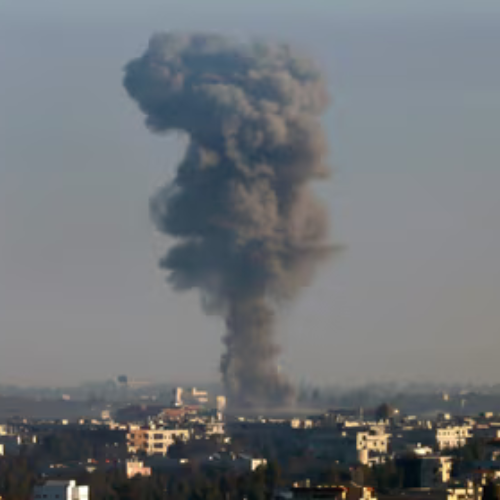Israel has launched airstrikes in Syria, targeting what it calls “strategic weapons systems.” This includes dangerous weapons like chemical weapons, long-range missiles, and rockets, which Israel fears might end up in the hands of extremist groups. These groups, according to Israel, could use such weapons to harm Israel and its citizens.
Israel Carries Out Airstrikes in Syria
The airstrikes are part of Israel’s ongoing efforts to protect its security. The country has made it clear that its main concern is to prevent weapons from falling into the wrong hands. Israel’s foreign minister said the reason for the attack was to secure its own safety, and they would only act if it meant protecting the country from potential threats.
In addition to airstrikes, Israel’s military has also carried out limited ground operations in Syria. These actions are described as “temporary” and “limited,” suggesting they are not a large-scale military operation but rather focused on specific threats in the region.
Russian Decision to Grant Asylum to Assad
Meanwhile, in Russia, a significant decision has been made regarding the future of Syrian President Bashar al-Assad. The Russian government has revealed that President Vladimir Putin personally authorized granting Assad and his family asylum in Russia. This decision came as a response to the ongoing situation in Syria, where Assad’s regime has faced challenges and opposition for several years.
Espionage and Technology Theft: Russian Engineer Detained in the Netherlands
Despite the asylum being granted, there are no plans at the moment for Assad to meet with Putin. The Syrian embassy in Moscow was seen flying a flag symbolizing opposition to Assad’s government. This suggests that, while Russia is offering protection to Assad, there is still a lot of political uncertainty surrounding Syria’s future leadership and its relations with other countries.
The decision to shelter Assad is seen as part of Russia’s ongoing involvement in Syria. Russia has been a strong supporter of Assad throughout the Syrian Civil War, providing military assistance to help keep his regime in power. Now, with the regime facing more threats, Russia’s move to offer asylum adds another layer to the complex international dynamics in the region.
Tensions and Changing Alliances
At the same time, new developments are happening within the region. Iran, which has also supported Assad during the war, is reportedly reaching out to leaders who helped overthrow his government. Iran believes that keeping open lines of communication is essential to avoid increasing regional tensions and instability.
ICC Charges Israeli and Hamas Leaders for War Crimes
On the other hand, the United Kingdom has hinted at reconsidering its stance on a group called Hayat Tahrir al-Sham. This group, which has led several military actions against Assad’s forces, has been on the UK’s list of banned terrorist organizations since 2017. The UK government’s decision to review this designation indicates that it is closely monitoring the evolving situation in Syria, where alliances and enemies are constantly shifting.
As tensions rise in Syria, countries like France are also getting involved. The French government has announced that it will send a special diplomatic envoy to Damascus, Syria’s capital, to discuss the situation further. This shows how the conflict in Syria has drawn in countries from around the world, each with their own interests and goals.
In the midst of these developments, Israel’s military actions remain focused on its immediate concerns regarding security. The country is determined to prevent any weapons that could pose a threat from being used by extremist groups or falling into the hands of those who wish to harm Israel.
The situation in Syria remains complex, with various nations taking sides and pushing their own agendas. Whether it is through military strikes, diplomatic moves, or shifting alliances, the region’s instability continues to have far-reaching consequences for both local and global security. The events unfolding in Syria highlight the delicate balance of power and the many factors that influence international relations today.


